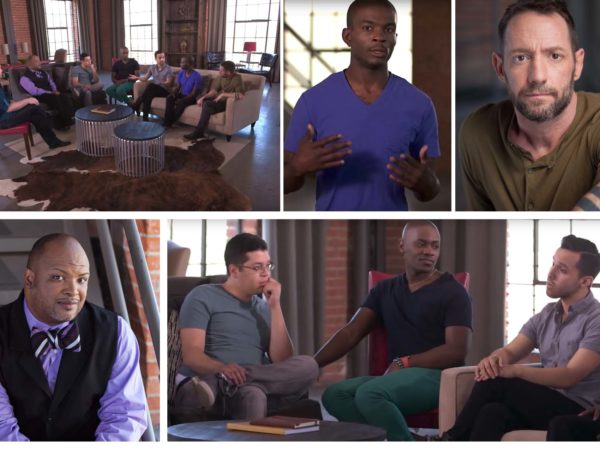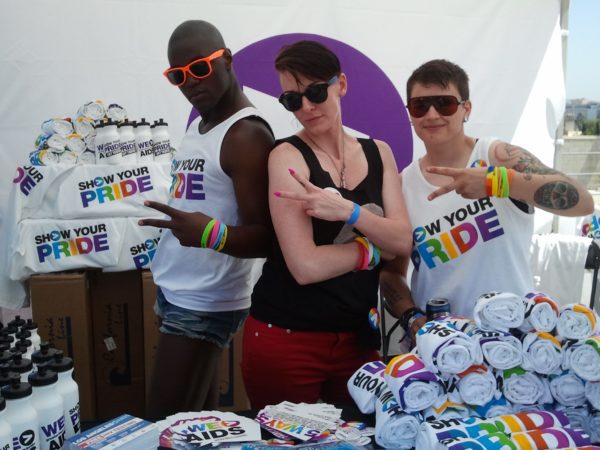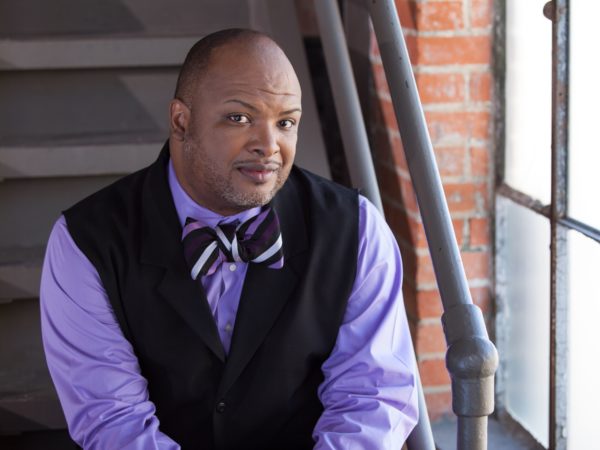– I feel like there’s still a lot of people that think gay, straight, or otherwise, HIV is so far away, and so I don’t have to probe, or I don’t have to seek out sex positive and gay friendly doctors, because HIV just doesn’t affect me.
– I think it’s very important to maintain a healthy relationship with your doctor and your care providers.
– Especially in our community when our exposure to certain diseases and viruses out there is heightened. Everyone should have a doctor that you can trust, and that you can confide in. – At the end of the day, that’s whose going to give you the best advise.
– I have a very good doctor and every time I see him, he asks me about my sexual activity, and he, you know, counsels me to make sure I’m always using condoms, and how to be safe and everything, and he always tests me.
– I get tested once a year. Normally it’s around my yearly birthday that I get tested.
– Your yearly birthday, like there’s.
– Yes.
– I try to go twice a year, and then also if I’ve had a scare. I’ve a very good communication with my doctor. I’ll be like, “Hey, I kind of messed up this weekend, “can we run some tests.” And he’s very understanding. Counsels, but very understanding.
– I get tested every three months cause the flesh is week. (laughs)
– There’s a lot of benefits to doing it that often, as well, cause if you catch it within a certain amount of time frame, you can start the right meds, and keep your viral loads so low that you can beat, you remain undetectable. If you wait, you know, a year, or two years, or three years after being infected, then the severity of it’s gonna be a lot worse.
– There’s a lot of people who get tested for “everything” and because your doctor says we checked you for everything, they just assume everything is everything.
– Unless you ask specifically for that, they’re not.
– A lot of it is the doctor’s responsibility too, to know your patients. I’ve had friends who’ll go in for like their check up and not have gotten tested. I’m like, “Your doctor didn’t test you?” And they’re like, “Well, they didn’t ask for it.” And I’m like, “Well, you should have asked for the test.” It’s crazy. I think it should be something that we just check off the list like everything else. You know, I got tested for this, for this, for HIV.
– I definitely thought I was at risk, but always had that fear. I used to be scared to get tested. It took me going to the hospital to finally find out that I was HIV positive. I got scared. Did what I had to do. Took care of myself, and found meds right away. Took care of it. But it’s a lot of people out there that think the same way I do, and it’s sad.
– I tell people every single day, it’s better to know your HIV status than not to know.
– I think it’s about your outlook. You know? I think when I got my diagnosis, I had a choice to make. Am I going to take care of myself here? Am I going to kind of own this, or am I gonna let this be my downfall. You know? And I think unfortunately, a lot of people let it become their downfall.
– One of my coworkers, he talks about this guy he went to doctor’s appointments with. He was in such deep denial of not wanting to get into treatment, cause it is a level of acceptance. It’s like going to a gay club is accepting that, okay, I’m gay. Getting on meds is accepting, okay, I really am HIV positive.
– When I got sober in 2008, that’s when reality kind of set in. I had not been in medical care. I had not been processing it. I guess it was at that moment that I decided to accept the responsibility of what I’ve done, and try to turn it around. I want to be empowered about this. When I go into a medical office, I want to take control of it, and it not take control of me. I want to know what questions to ask, what resources are available to me.
– I knew that it was important to start treatment immediately. So I reached out to some contacts I had at a local HIV organization, and got into treatment, started medicine right away. I think it’s incredible that they’re organizations out there that help people when they do receive a positive diagnosis. It can be a really difficult thing to deal with both emotionally and financially.
– Pre-exposure prophylaxis, or PREP, is for HIV negatives to prevent infection. It’s a course of drugs that you can take prescribed specifically for you. It’s intended to build up your immunity against the HIV virus.
In chapter two (of three), seven guys talk about health and HIV. It all starts with knowing your HIV status. For individuals living with HIV, accessing treatment and staying in care not only improves health but also prevents transmission. For those who test negative, there are more options than ever before to stay that way.


